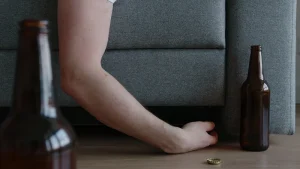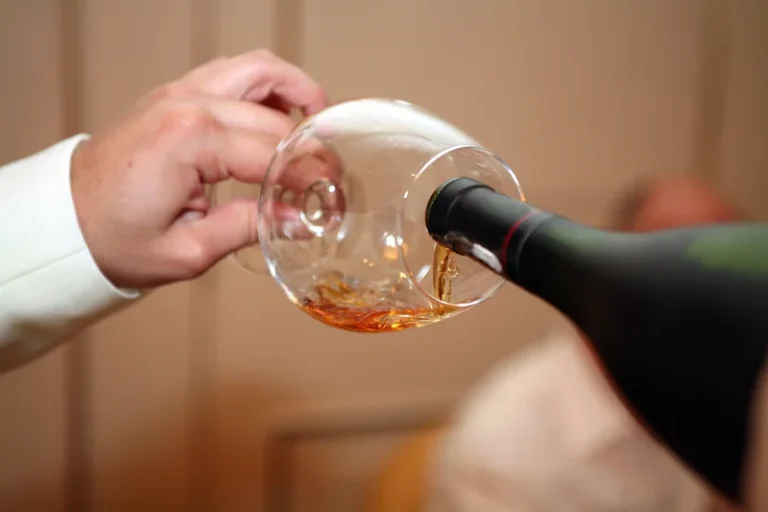
It’s important to be open with your healthcare provider about your symptoms and alcohol consumption history so they can provide the best care possible. Remember, seeking help is a significant step toward recovery, and you deserve appropriate treatment and support for your condition. In conclusion, understanding the prognosis for recovery from alcoholic neuropathy and following your treatment plan is essential to manage the condition effectively. Prioritize your health, abstain from alcohol, address nutritional deficiencies, and stay committed to the prescribed course of treatment for the best possible outcomes.
Treatment

To improve your quality of life, several treatment options, such as pain relievers, physical therapy, and lifestyle changes, will be required. Keep in mind that recovery can be a slow process, taking weeks to months, depending on the individual and the severity of the condition. Patience and consistency in adhering to the prescribed treatment are crucial for a successful recovery. It’s important to be open with your healthcare provider about your symptoms and alcohol consumption history so they can provide the best care possible. In addition, a support group can help you cope with the life changes you’re experiencing as a result of your condition.
Sensory symptoms
In an inpatient facility, you will cut off the alcohol consumption and allow the body to recover properly. However, if you stop drinking, the symptoms can subside, and you may be able to reduce the possibility of any further deterioration. Unfortunately, in Twelve-step program most cases, the damage that alcoholic neuropathy causes is permanent.

What causes peripheral neuropathy in individuals with alcoholism?
- Call for an appointment with your provider if you have symptoms of alcoholic neuropathy.
- Alcoholic neuropathy can be divided into mild, moderate, and severe stages.
- In someone with alcohol use disorder who may consistently consume large amounts of alcohol, the chronic effect of alcohol on nerves can lead to permanent damage.
- Orthopedic appliances, such as braces and mobility aids, can also be beneficial in supporting day-to-day functioning and maintaining independence during your recovery journey.
- But in most cases, alcoholic neuropathy takes several years or even decades to develop, depending on the amount of alcohol consumed.
Here is how alcoholic neuropathy can affect your life, including viable treatment options. This disease can have a massive impact on the peripheral and central nervous systems. The key to managing these dangerous effects is spotting the neuropathy as what does alcoholic neuropathy feel like soon as possible.

It’s about understanding the role alcohol plays in our lives and finding healthier alternatives to cope with stress, socialize, and relax. Alcohol also alters the function of the stomach, liver, and kidneys in ways that prevent the body from properly detoxifying waste material. This waste then builds up and harms many regions of the body, including the nerves.
Alcoholic Neuropathy: Symptoms, Treatment, and Recovery Timelines
If you drink alcohol, it’s important to understand how much alcohol can cause neuropathy and how to deal with this issue if you begin experiencing its symptoms. When alcoholic neuropathy causes nerve damage, this damage is often permanent. With continued alcohol abuse, people become vulnerable to chronic pain, disability, and damage to their extremities. In addition to affecting sensory and motor nerves, alcoholic neuropathy can also impact your autonomic nerves. These nerves regulate internal body functions that you might not be consciously aware of, such as digestion and blood circulation. When autonomic nerves are damaged, you may experience digestive issues like constipation or diarrhea.
Can alcohol cause pain in your feet?

This leads to a build-up of toxins in the body because the system that flushes these toxins is no longer working correctly. Sensory symptoms, caused by damage to sensory nerves, usually begin in the feet before progressing to the legs, hands, and arms. However, vulnerability to neuropathy and its severity and speed of progression varies. The eyes too, might reflect the toll taken by excessive alcohol consumption, showcasing signs like redness, dryness, and sometimes involuntary rapid eye movements, often referred to as « alcoholic eyes. » Alcoholic neuropathy often manifests as a disconcerting array of sensations. Initially, it may start as a subtle tingling or numbness in the extremities, gradually spreading upward, almost like a constant, tingling vibration.
- To find out if your policy covers alcohol addiction rehab, click here, or fill out the form below.
- Nerve damage typically affects the axons, which are the projections that send electrical signals from one nerve to another.
- She believes in healing the whole person in a safe and supportive environment.
- This often means the nerves, especially those farther away from the heart, become deficient.
Build Better Drinking Habits With Reframe!
Kathleen has more than 15 years of experience treating people who have a substance use disorder. Justin was born and raised in Fort Collins, Colorado, where he began his clinical education at Colorado State University. He received his bachelor’s in health and exercise science with a concentration in sports medicine and eventually earned a master’s of psychology in addiction counseling. During his time as a therapist, Justin has worked in a residential addiction treatment facility, private practice, and outpatient settings. Karlie is originally from Dayton, Ohio, and began her education in psychology at the University of Cincinnati. She participated in research studying ADHD in children, mindfulness and anxiety, and embodied cognition.
What Are the Health Conditions that Mimic Alcohol-Induced Neuropathy?
Between post-graduate work and additional training courses, she honed her skills in treating first responders and military personnel from a trauma-informed perspective. Danny has extensive experience in effectively treating incidental and complex trauma. He further describes his approach as science-driven, constantly reviewing the latest literature and theory. Danny ensures he has as many techniques as possible to help people improve their well-being and achieve their goals. Outside of work, he divides his time between family, basketball, and rock climbing.
Laisser un commentaire